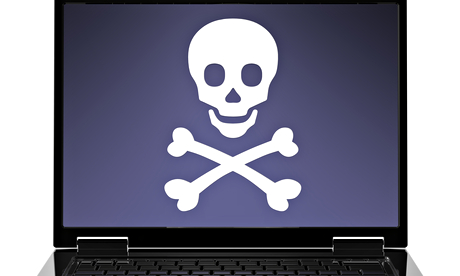
Don't panic! If you have one of the 400 million-plus PCs and laptops still running on Windows XP, you probably received the news with dismay that, from 8 April, it is no longer supported by Microsoft, sparking fears of hackers and hi-tech thieves decimating your system.
In practical terms, the move means your PC will no longer receive updates fixing security problems. Without this, came the dire warnings, anyone who uses their PC to connect to the internet could be catastrophically exposed.
Rest assured, your venerable old PC won't suddenly implode. Windows XP won't stop working, and you will be able to carry on using it for as long as you like (Windows 98, for example, is also no longer supported, but still runs).
But the risk is that your computer will become much more vulnerable to cyber attacks, while your software may miss out on crucial updates.
So what should you do about it, and how much will it cost?
You have four basic choices: stop using XP online; upgrade to a new version of Microsoft Windows; switch to an alternative operating system, such as Linux; or buy a new PC. Linux is free but you will have a lot to learn. Buying a new PC is the simplest but most expensive option. Upgrading to Windows 7 or 8 isn't free but it should run your old software and will be relatively easy to adapt.
Which upgrade should I buy?
Windows 7 – itself almost five years old – is most like Windows XP, and you can buy a copy on Amazon for £69.99 or less. Windows 8.1 is a better operating system but it was designed for "touch first" use on tablets and laptops with touch screens. Following protests, Microsoft has been busy fixing problems for mouse and keyboard users, and Windows 8.1 Update 1 is now the best option. You can still buy the original Windows 8 Pro Upgrade Edition (£89.99) then upgrade to 8.1 Update 1 free online.
Will my old PC run Windows 7 or 8?
You'll have to go to the Microsoft website and download Windows 7 Upgrade Advisor or the Windows 8 Upgrade Assistant. These programs will analyse your PC, software and peripherals (eg, printers) and tell you if they are compatible. Windows 8.1 is very efficient and it will probably work, unless your PC is very old. However, you may need to buy a new graphics card such as the Asus GeForce GT 610 Nvidia (£24.99 plus £2.25 for brackets).
Is it hard to upgrade?
It's easy to install a new version of Windows but, be warned, you can't do an "in place" upgrade from XP: it will wipe everything on your hard drive. In other words, all your stored photos and documents will be lost, so first of all you must make back-up copies. You can back up your data to an external hard drive, or CDs or DVDs, or thumb drives, depending on how much stuff you have. Of course, you should already have everything backed up in case a hard drive fails (and hard drives often fail after 5 years), so an external hard drive is a good solution. Alternatively, if you have both PCs side by side, you can move data across via a cable.
If you want to move your data from an old PC to a new one installed with Windows 7 or 8, Microsoft has done a deal with Laplink to provide free copies of PCmover Express for Windows XP. You can download it from Microsoft. It will move your data (including emails), profiles and settings to your new system. The Express version will not move programs. For that, you would need a copy of PCmover Professional, temporarily 60% off for XP users (£15.95). In general, it's better to reinstall programs rather than move them.
What happens to the software I have?
If you have subscription-based software, such as McAfee, then you should be running the latest version, which will already be compatible with Windows 7 and 8. If you haven't upgraded, then you should. This will ensure that any XP data is compatible with Windows 7 or 8. Once you have your new PC set up, log on to your online account (which, in McAfee's case, is called My Account) and re-download the software.
If you have disc-based software, such as Microsoft Office, then ideally you should uninstall it from the old (XP) machine, then reinstall it on your new PC using the same discs and the product validation key. If you can't find the key, search for a program that will extract it from XP, such as Belarc Advisor.
And if you decide on a new PC …

